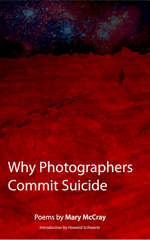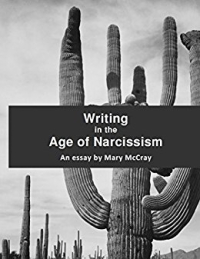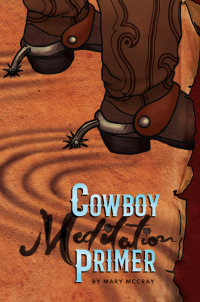 Art, Artifice and Ancestry
Art, Artifice and Ancestry
“They seek and cannot find the meaning of the music.
We see only postures of the dream,
Riders of the motion that swings the face
Into view under evening skies, with no
False disarray as proof of authenticity.”
This is from John Ashbery’s greatest hit, “Self-Portrait in a Convex Mirror,” a great contemplation of art for any self-portraiture artist.
I guess you know when any blog post begins with an Ashbery quote, this is going to take a minute.
After a bit of a break we are moving on ahead with Elisa New’s questions about poetry from the Harvard MOOC on Emily Dickinson. This week’s question is about how poetry is like or different from the other arts. I started with this post last week and stalled after the brief categorical musings below.
I started by listing out all the arts I could think of: the so-called plastic arts (3D things like sculpture), drawing and painting, photography, the fabric arts, music, film and animation, theater and dance and the writing arts. There’s also decorative arts (furniture and home goods), experiential art (like happenings), digital art (including game design) and fashion design. Some would include architecture. There are probably more I’m missing.
I guess the answer to a question like this is sort of hierarchical, (and I’m going to come back to this later), because on some level the impulses to make art are all the same. And there are mashups happening between all these art forms. So in that way, it’s very fluid.
 You could argue that writing is very verbal and verbal arts would include poetry, prose, theater scripts, screenplays and the lyric part of songwriting.
You could argue that writing is very verbal and verbal arts would include poetry, prose, theater scripts, screenplays and the lyric part of songwriting.
Some physical artists use word play as well, either as abstract material or as literal content to add another layer of meaning to physical objects. Likewise, some writers work with spatial ideas on paper.
I’ve always thought writing entailed the least amount of physical skill. Many of the arts demand a good deal of hand-eye coordination. Magic fingers. The physical arts are very tactile obviously. Writing happens mostly up in your head.
Of all the arts, music seems the most abstract and nonverbal (apart from lyric writing). But many of the other arts can be plenty abstract, as can writing itself if words are separated from the things they attempt to signify.
And here is where I hit a wall last week. What else is there to say about this? I am always trying to figure out the buckets and usually find out buckets themselves are problematic. If you ever have to make an arbitrary bucket choice in your categorization scheme, something is wrong with your buckets.
Over the last few weeks, my friend Jen has been conversing with me over email about the 2024 Joni Mitchell book Traveling (Ann Powers) and about jazz fusion and purism. For example, in the book we learn that many jazz purists insist that what Joni Mitchell was doing was not jazz but jazz fusion. I was telling Jen today that I never really understood what the word fusion meant, (just one of those obscure jazz words, you know) before we started talking about it. And I went down a rabbit hole last week wondering about the other music genres. Did they all have a sort of renegade fusion gang pulling at their neatly sewn seams?
Like is there blues fusion? I often research Cher’s 1970s torch catalog for my other blog and many of those songs are defined as blues songs, but they seem more like pop/blues. Would torch songs be considered a kind of fusion? Is there a rap fusion, a classical fusion (would Liberace sit here?). Does fusion just mean a mashup?
I was telling Jen today that I think my whole problem is that I can’t see the boundaries of anything. I really struggle with this. Music genres, movie genres, writing genres. Where are the boundaries of the western or horror genres? How is a prose poem different from flash fiction? What the hell is fictional memoir?
The Exorcist is a prime example for me. It’s mostly a mid-1970s auteurist drama IMHO. I just Googled that term to see if it was a thing. Not only is it decidedly not a thing, but the first movie that came up for it was Al Pacino’s comedy Author! Author! which I love for predictable reasons: it’s got a dramatic actor in a comedy pretending to be a wacky family drama but is ultimately about a completely failed family system. What’s not to love about that??
But back to The Exorcist, which is a slow burning candle depicting mainly the breakdown of single, working mother with a few scary scenes thrown in that tap into the horror genre and were so remarkable that they captured our idea of what genre that movie was.
It’s very fuzzy for me, as you can see. And so when anyone exploits the complexity of the buckets we’ve culturally created, (with a comedy horror or a western horror movie, for example), I’m delighted. I’m in my space.
And I think my problem with buckets is not just because I overthink my buckets (which I do), but because of the way my brain works to categorize anything. Should we categorize the Lucky Charms marshmallows by color or shape?
 But also I struggle for a plethora of other reasons, like living through postmodernism, being part of the Gen X group, influences I have encountered starting with my father, who himself organically resists buckets and loves both Lucinda Williams and ABBA songs.
But also I struggle for a plethora of other reasons, like living through postmodernism, being part of the Gen X group, influences I have encountered starting with my father, who himself organically resists buckets and loves both Lucinda Williams and ABBA songs.
As I was thinking about all these issues: fusion and types of art, I was also working to understand my poetic ancestry. Poets like Joy Harjo have been calling for poets to create a written genealogical chart of our writing influences. And I’ve been having trouble with this, too, because I’ve been mistakenly focusing on my teachers and mentors, who did influence me but not really my taste (or lack thereof). I kept trying to draw up from Howard Schwartz to his teacher and then up to that man’s teacher, all the way back to Theodore Roethke. But that never feels right. I don’t think my experiments are really related to those people at all. They were just guides and mentors, (versus textual influencers), trying to help me do my own thing not something like their thing. My poetry is really nothing like Howard Schwartz’s or Theodore Roethke’s poetry.
When I’ve talked about my interest in Queer Culture, (most recently in my Cher blog), this has probably been my greatest influence. Even if you’re not LGBTQ+, you can have a queer sensibility, (see the book Camp Grounds, David Bergman). And I think this has to do with the gay male culture I’ve been exposed to as a Cher fan and my sympathy not only with those artists politically, but very importantly aesthetically. And the aesthetics very broadly include camp, drag, the celebration of guilty pleasures but also the idea of textural resilience and bullying, and as a woman who was pressured in many ways to be a “sweet Mary,” the tools of subversion.
 So this morning I was reading an essay on the New York Poets (Frank O’Hara, John Ashbery, Kenneth Koch, Barbara Guest and James Schuyler), and I realized I was unavoidably influenced by these poets (and a plethora of ancestors between them and me) and their ideas of genre fusion, their slippages in tone. Were they being serious or funny in their poems? Were they making fun of pop culture or revering it? I feel I can fundamentally understand that they were doing both at all time. Because I too, cannot fairly see the boundary between comedy and drama or pop culture and anything else. And it’s not surprising that the two pillars of this school (Ashbery and O’Hara) were gay men.
So this morning I was reading an essay on the New York Poets (Frank O’Hara, John Ashbery, Kenneth Koch, Barbara Guest and James Schuyler), and I realized I was unavoidably influenced by these poets (and a plethora of ancestors between them and me) and their ideas of genre fusion, their slippages in tone. Were they being serious or funny in their poems? Were they making fun of pop culture or revering it? I feel I can fundamentally understand that they were doing both at all time. Because I too, cannot fairly see the boundary between comedy and drama or pop culture and anything else. And it’s not surprising that the two pillars of this school (Ashbery and O’Hara) were gay men.
The New York School poets targeted the boundaries between high and lowbrow art, including poems that reference movies, symphonies, French fiction, pornography, epics, cartoons (this is Brian M. Reed’s list from this morning’s essay in The Cambridge History of American Poetry)…and most famously abstract expressionists paintings.
Reed goes on to say these writers adopted “the same impassioned tone toward both elite and popular culture which can leave a writers taste level in doubt, as well as lead to a reservation considering his or her fundamental aesthetic values.”
Or I would argue a reservation considering the idea of fundamental aesthetic value itself.
Or the fact that some of us can only see one bucket.
 Later Reed says, “the poets permit themselves to scramble, invert, reinvent, and otherwise tinker with every available discourse without respecting any of them as sacred or outside the limits…[and they] exalt in this freedom by making artifice and artificiality a central theme in their work.”
Later Reed says, “the poets permit themselves to scramble, invert, reinvent, and otherwise tinker with every available discourse without respecting any of them as sacred or outside the limits…[and they] exalt in this freedom by making artifice and artificiality a central theme in their work.”
Later Reed says the New York School poets would also “draw attention to the problem of artifice, probing its zero degree, the boundary between art and nonart.”
So this problem is hierarchical, we can see again. Where is the boundary between say rap and pop or comedy and drama? Then where is it between movies and photographs? Between poems and song lyrics? Between high and lowbrow? Between art and nonart? The good and the bad? A yen and a taste? The opinions of ourselves and the opinions of others we love and admire? The border between the self and others period?
It all feels irrelevant then when you can’t find the edges.
The sculpture at the top is “Rethink Plastic” is by the artist Javier Jaén.
 This summer I finally was able to watch Schmigadoon on AppleTV. I decided to watch Ted Lasso after that since I had heard so many good things about it. I finally finished the three great seasons last night. One of the best TV shows period. Music and poetry turned out to be artfully placed on the show.
This summer I finally was able to watch Schmigadoon on AppleTV. I decided to watch Ted Lasso after that since I had heard so many good things about it. I finally finished the three great seasons last night. One of the best TV shows period. Music and poetry turned out to be artfully placed on the show.




























